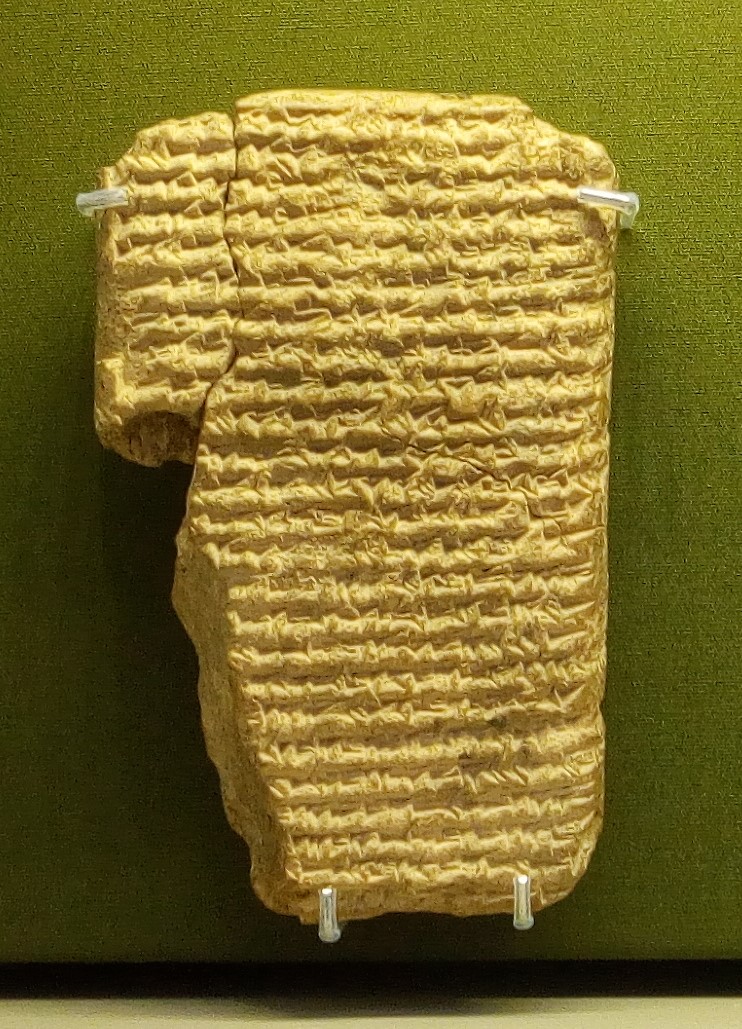|
Muṣuri
Muṣuri () was a ruler of Moab during the reigns of the Assyrian kings Esarhaddon (681-669 BCE) and Assurbanipal (669-c.627 BCE). His name may mean "the Egyptian." This name may simply be a given name or nickname; alternatively, it may be an indicator of his ethnicity (e.g., he may have been an Egyptian prince installed by the Assyrians, or his mother may have been an Egyptian wife or concubine of his predecessor on the Moabite throne). Another possibility is that he may have been given the name as a title during some campaign against Egypt (as with Roman names Germanicus, Britannicus Tiberius Claudius Caesar Britannicus (12 February AD 41 – 11 February AD 55), usually called Britannicus, was the son of Roman Emperor Claudius and his third wife, Valeria Messalina. For a time, he was considered his father's heir, but t ..., etc.). References Moab {{MEast-royal-stub ... [...More Info...] [...Related Items...] OR: [Wikipedia] [Google] [Baidu] |
Moab
Moab () was an ancient Levant, Levantine kingdom whose territory is today located in southern Jordan. The land is mountainous and lies alongside much of the eastern shore of the Dead Sea. The existence of the Kingdom of Moab is attested to by numerous archaeological findings, most notably the Mesha Stele, which describes the Moabite victory over an unnamed son of Kings of Israel and Judah, King Omri of Kingdom of Israel (Samaria), Israel, an episode also noted in Books of Kings, 2 Kings 3. The Moabite capital was Dibon. According to the Hebrew Bible, Moab was often in conflict with its Israelites, Israelite neighbours to the west. Etymology The etymology of the word Moab is uncertain. The earliest Biblical gloss, gloss is found in the Koine Greek Septuagint () which explains the name, in obvious allusion to the account of Moab's parentage, as ἐκ τοῦ πατρός μου ("from my father"). Other etymologies which have been proposed regard it as a corruption of "seed of a ... [...More Info...] [...Related Items...] OR: [Wikipedia] [Google] [Baidu] |
Open Richly Annotated Cuneiform Corpus
The Open Richly Annotated Cuneiform Corpus, or Oracc, is an ongoing project designed to make the corpus of cuneiform compositions from the ancient Near East available online and accessible to users. The project, created by Steve Tinney of the University of Pennsylvania, incorporates a number of sub-projects, including online publications of lemmatized texts in different genres, as well as extensive annotations and other tools for studying and learning about the ancient Near East. The sub-projects are directed by individual scholars specializing in the relevant topic. The overall project is led by a steering committee of Tinney, Eleanor Robson of Cambridge University, and Niek Veldhuis of the University of California, Berkeley. Projects Oracc currently includes several different kinds of projects. Some gather and present historical information for studying certain areas of ancient Near Eastern life or scholarship, including projects designed to contextualize specific textual co ... [...More Info...] [...Related Items...] OR: [Wikipedia] [Google] [Baidu] |
University Of Pennsylvania
The University of Pennsylvania (Penn or UPenn) is a Private university, private Ivy League research university in Philadelphia, Pennsylvania, United States. One of nine colonial colleges, it was chartered in 1755 through the efforts of founder and first president Benjamin Franklin, who had advocated for an educational institution that trained leaders in academia, commerce, and public service. The university has four undergraduate schools and 12 graduate and professional schools. Schools enrolling undergraduates include the College of Arts and Sciences, the University of Pennsylvania School of Engineering and Applied Science, School of Engineering and Applied Science, the Wharton School, and the University of Pennsylvania School of Nursing, School of Nursing. Among its graduate schools are its University of Pennsylvania Law School, law school, whose first professor, James Wilson (Founding Father), James Wilson, helped write the Constitution of the United States, U.S. Cons ... [...More Info...] [...Related Items...] OR: [Wikipedia] [Google] [Baidu] |
Assyria
Assyria (Neo-Assyrian cuneiform: , ''māt Aššur'') was a major ancient Mesopotamian civilization that existed as a city-state from the 21st century BC to the 14th century BC and eventually expanded into an empire from the 14th century BC to the 7th century BC. Spanning from the early Bronze Age to the late Iron Age, modern historians typically divide ancient Assyrian history into the Early Assyrian period, Early Assyrian ( 2600–2025 BC), Old Assyrian period, Old Assyrian ( 2025–1364 BC), Middle Assyrian Empire, Middle Assyrian ( 1363–912 BC), Neo-Assyrian Empire, Neo-Assyrian (911–609 BC), and Post-imperial Assyria, post-imperial (609 BC– AD 240) periods, based on political events and gradual changes in language. Assur, the first Assyrian capital, was founded 2600 BC, but there is no evidence that the city was independent until the collapse of the Third Dynasty of Ur, in the 21st century BC, when a line of independent kings starting with Puzur-Ashur I began rulin ... [...More Info...] [...Related Items...] OR: [Wikipedia] [Google] [Baidu] |
Esarhaddon
Esarhaddon, also spelled Essarhaddon, Assarhaddon and Ashurhaddon (, also , meaning " Ashur has given me a brother"; Biblical Hebrew: ''ʾĒsar-Ḥaddōn'') was the king of the Neo-Assyrian Empire from 681 to 669 BC. The third king of the Sargonid dynasty, Esarhaddon is most famous for his conquest of Egypt in 671 BC, which made his empire the largest the world had ever seen, and for his reconstruction of Babylon, which had been destroyed by his father. After Sennacherib's eldest son and heir Aššur-nādin-šumi had been captured and presumably executed in 694, the new heir had originally been the second eldest son, Arda-Mulissu, but in 684, Esarhaddon, a younger son, was appointed instead. Angered by this decision, Arda-Mulissu and another brother, Nabû-šarru-uṣur, murdered their father in 681 and planned to seize the Neo-Assyrian throne. The murder, and Arda-Mulissu's aspirations of becoming king himself, made Esarhaddon's rise to the throne difficult and he first ... [...More Info...] [...Related Items...] OR: [Wikipedia] [Google] [Baidu] |
Assurbanipal
Ashurbanipal (, meaning " Ashur is the creator of the heir")—or Osnappar ()—was the king of the Neo-Assyrian Empire from 669 BC to his death in 631. He is generally remembered as the last great king of Assyria. Ashurbanipal inherited the throne as the favored heir of his father Esarhaddon; his 38-year reign was among the longest of any Assyrian king. Though sometimes regarded as the apogee of ancient Assyria, his reign also marked the last time Assyrian armies waged war throughout the ancient Near East and the beginning of the end of Assyrian dominion over the region. Esarhaddon selected Ashurbanipal as heir 673. The selection of Ashurbanipal bypassed the elder son Shamash-shum-ukin. Perhaps in order to avoid future rivalry, Esarhaddon designated Shamash-shum-ukin as the heir to Babylonia. The two brothers jointly acceded to their respective thrones after Esarhaddon's death in 669, though Shamash-shum-ukin was relegated to being Ashurbanipal's closely monitored vassal. Mu ... [...More Info...] [...Related Items...] OR: [Wikipedia] [Google] [Baidu] |
Ancient Egypt
Ancient Egypt () was a cradle of civilization concentrated along the lower reaches of the Nile River in Northeast Africa. It emerged from prehistoric Egypt around 3150BC (according to conventional Egyptian chronology), when Upper and Lower Egypt were amalgamated by Menes, who is believed by the majority of List of Egyptologists, Egyptologists to have been the same person as Narmer. The history of ancient Egypt unfolded as a series of stable kingdoms interspersed by the "Periodization of ancient Egypt, Intermediate Periods" of relative instability. These stable kingdoms existed in one of three periods: the Old Kingdom of Egypt, Old Kingdom of the Early Bronze Age; the Middle Kingdom of Egypt, Middle Kingdom of the Middle Bronze Age; or the New Kingdom of Egypt, New Kingdom of the Late Bronze Age. The pinnacle of ancient Egyptian power was achieved during the New Kingdom, which extended its rule to much of Nubia and a considerable portion of the Levant. After this period, Egypt ... [...More Info...] [...Related Items...] OR: [Wikipedia] [Google] [Baidu] |
Germanicus
Germanicus Julius Caesar (24 May 15 BC – 10 October AD 19) was a Roman people, Roman general and politician most famously known for his campaigns against Arminius in Germania. The son of Nero Claudius Drusus and Antonia the Younger, Germanicus was born into an influential branch of the Patrician (ancient Rome), patrician ''gens Claudia''. The Victory title, agnomen ''Germanicus'' was added to his full name in 9 BC when it was posthumously awarded to his father in honor of his victories in Germania. In AD 4 he was adopted by his paternal uncle Tiberius, himself the stepson and heir of Germanicus' great-uncle Augustus; ten years later, Tiberius succeeded Augustus as Roman emperor. As a result of his adoption, Germanicus became an official member of the ''gens Julia'', another prominent family, to which he was related on his mother's side. His connection to the ''Julii Caesares'' was further consolidated through a marriage between him and Agrippina the Elder, a granddaughter of Au ... [...More Info...] [...Related Items...] OR: [Wikipedia] [Google] [Baidu] |
Britannicus
Tiberius Claudius Caesar Britannicus (12 February AD 41 – 11 February AD 55), usually called Britannicus, was the son of Roman Emperor Claudius and his third wife, Valeria Messalina. For a time, he was considered his father's heir, but that changed after his mother's downfall in 48, when it was revealed she had engaged in a bigamous marriage without Claudius' knowledge. The next year, his father married Agrippina the Younger, Claudius' fourth and final marriage. Their marriage was followed by the adoption of Agrippina's son, Lucius Domitius Ahenobarbus, whose name became Nero as a result. His stepbrother would later be married to Britannicus' sister Octavia and soon eclipsed him as Claudius' heir. After his father's death in October 54, Nero became emperor. The sudden death of Britannicus shortly before his fourteenth birthday is reported by all extant sources as being the result of poisoning on Nero's orders; as Claudius' biological son, he represented a threat to Nero ... [...More Info...] [...Related Items...] OR: [Wikipedia] [Google] [Baidu] |
Kamas-halta
Kamas-halta (; ) is mentioned in n sources as a king of during the reign of , who was king of the Neo-Assyrian Empire
[...More Info...] [...Related Items...] OR: [Wikipedia] [Google] [Baidu] |






